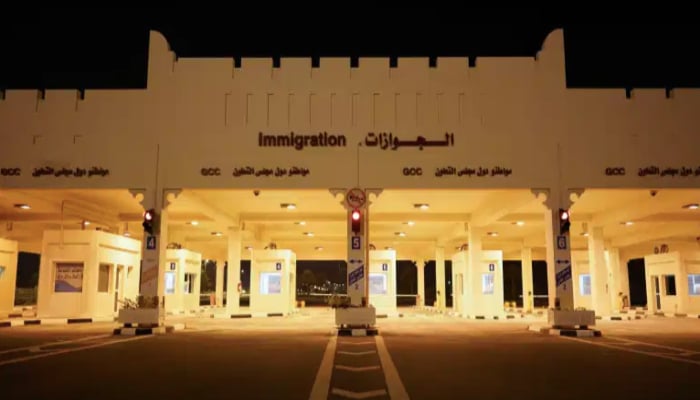Rebuking the commissioner, Chief Justice of Pakistan (CJP) Gulzar Ahmed remarked, “All of you have colluded on the matter.”
He warned that contempt of court proceedings would be initiated against the relevant authorities if they failed to evacuate the illegally occupied land of the park within the stipulated time.
The court sought an implementation report from the commissioner on the evacuation of the park’s land and issued notices to Farhan Society and Overseas Co-operative Housing Society.
At an earlier hearing of the case the previous day, the apex court had directed that all encroachments be removed from Kidney Hill Park and a report be submitted to it on Wednesday (today).
The lawyer for the Karachi Municipal Corporation had, however, contended that houses had been built on the park’s land and it would be difficult to remove the encroachments by Wednesday, upon which the court gave time until the next date of hearing but directed that an initial report be submitted on Wednesday.
Besides, the court inquired from the commissioner about the removal of encroachments from Shahrah-e-Quaideen.
Shaikh informed the court that encroachments on the road had been removed and shops that had been illegally constructed there had been demolished.
Computerization of land records
The court also directed the relevant authorities to end the illegal occupation of state property across Sindh. It further issued orders for the restoration of green belts, removal of encroachments from parks and playgrounds, and ending the illegal occupation of land owned by the forest and irrigation departments across the province.
Senior Member Board of Revenue (SMBR) Qazi Shahid Parvaiz submitted a report, sought by the court at a previous hearing, pertaining to the computerization of land records.
Following that, the CJP asked Parvaiz whether any state land was left in Sindh. The SMBR admitted that state property was encroached in the province, adding, however, that an anti-encroachment drive was underway.
Irked by his response, the CJP remarked: “Go and visit the Super Highway where 10-story buildings have been [illegally] constructed. Encroachments abound government lands, where entire cities have been [illegally] established.”
At this, the SMBR assured the court that efforts were being made for the removal of encroachments.
The CJP, however, continued his rebuke. He pointed out that 1,000 acres of illegally occupied state land had been evacuated in Malir in recent days. Referring to the previous day's hearing pertaining to encroachments on the Karachi Circular Railway land, the CJP said it had emerged that a building had been constructed on land owned by the government.
When the SMBR said that action had also been taken against mukhtiarkars on the matter, the CJP sought details of land owned by the government in Sindh and directed him to remove illegal structures wherever they had been built on state land.
The SMBR further informed the court that 70 million land records had been computerized in Sindh.
However, the court refused this claim, commenting that cases of fake land records were still being filed in the Sindh High Court.
Parvaiz maintained, however, that the issue had been resolved to a large extent. He elaborated that the Pakistan Security Printing Corporation had been engaged in the preparation of land documents and each page of the document had a printing ID. Besides, all land records kept by mukhtiarkars are matched with those in the revenue department, the SMBR added.
At this, Justice Sajjad Ali Shah pointed out that there was a large number of irregularities in the records of properties in Thatta.
Briefing the court on the matter, the SMBR said that a committee formed by the SC had identified fake land ownership entries in large numbers. Of those, over 1,000 fake entries had been removed, he told the court, adding that over 1,100 of those entries were under judicial review. He said more than 240,000 fake entries had been identified since 1985.
‘Plant mangroves’
Moreover, the apex court again directed the Karachi Port Trust (KPT) authorities to plant mangroves on land previously allotted for the construction of a housing society after the counsel for the KPT submitted a report.
In February this year, the court had declared the allotment of land on both sides of Mai Kolachi Road for the Karachi Port Trust Cooperative Housing Society illegal, besides ordering the plantation of mangroves on the said land within two months.
A three-judge SC bench, headed by the CJP, had observed that the land was provided to the KPT only for the purpose of management and operations of the port and any lease made in favor of its trustees or employees was illegal.
As the court reiterated its directive on Wednesday, further ordering that the height of the land be brought to the sea level, the KPT counsel requested for more time to start the plantation of mangroves.
“Be as fast at planting the trees as you sold the plots,” the court stated in return, seeking a report within two months after the completion of the plantation drive.
When the counsel for the persons who were allotted the plots prayed the SC to rethink its decision, the SC stated that they may file a civil suit to get compensation.
Non-supply of water to Clifton, DHA
Besides, the Clifton Board Cantonment (CBC) chief executive (CEO) officer drew the court’s ire on the matter of non-supply of potable water to the residents of Defence Housing Authority (DHA) and Clifton.
The court expressed annoyance when he said that the CBC relied on the Karachi Water and Sewerage Board (KWSB) for water supply.
“You rely on the KWSB and how is it treated,” the court reprimanded the CEO, adding that a major would visit the board’s office in case of suspension of water supply and give threats of closure. It further commented that on the other hand, water was always available for even the lawns and gardens in the houses of persons from the armed forces.
The court sought a comprehensive report from the CBC on water supply, including details of DHA residents’ water requirements, within two days.


















